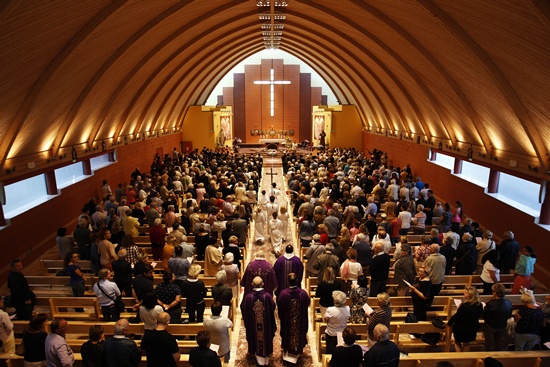
December 3, 2015
SEOUL (AFP) - After a debate stretching back more than 40 years, South Korea's parliament has approved a bill that will finally compel the country's influential clergy to pay taxes.
The bill was passed shortly before midnight Wednesday by 195 votes to 20, with 50 legislators abstaining.
It has been a long road to legislation, with previous efforts to bring monks, priests and pastors into the national tax fold being repeatedly foiled by vehement clerical opposition and political timidity.
In a reflection of the issue's sensitivity, the new bill has a lengthy built-in time delay, only coming into effect from the start of 2018.
Kang Seog-Hoon, a legislator with the ruling Saenuri Party, said the grace period would be used to communicate with religious groups "so that the policy can settle down without turbulence".
South Korea has an estimated 360,000 priests and monks whose earnings will be re-classified as "religious income" rather than the current label of "honorarium".
A sliding bracket means those earning 40 million won (34,500 dollars) or less a year will only be taxed on 20 percent of their income.
At the upper end, those earning more than 150 million won will have to pay tax on 80 percent of their income.
Public opinion polls have long favoured extending tax responsibilities to religious groups, some of whom are highly secretive about their financial arrangements.
"Pastors who receive benefits and gifts outside of their monthly income and do not pay income taxes can be perceived as not doing their duties as members of the community," said Kim Ai-Hee, secretary general of the Korean Christian Alliance for Church Reform.
-- Muscular religious faith --
For many first-time visitors to Seoul, a common take-away memory is the surprising multitude of neon crosses glowing across the South Korean capital's nightscape.
The theory that prosperity and socio-economic development tend to breed secularism holds little water in a country where modernity appears to have fuelled religiosity.
In the last national census to include religious affiliation, conducted in 2005, close to 30 percent of South Koreans identified themselves as Christian, and 23 percent as Buddhist.
Catholic priests have voluntarily paid income tax since the mid-1990s, and the most vocal opponents of the new policy are within the larger Protestant community which wields considerable political clout.
Some individual Protestant churches boast enormous congregations and considerable wealth, and are run like mini-fiefdoms with pastors passing control of the church and its business down to their children.
Last year, the pastor of the biggest congregation of all, at the Yoido Full Gospel Church in Seoul, was handed a three-year suspended jail term for embezzling millions of dollars.
But the opponents of taxation insist their stance is grounded in principle rather than self-interest.
"Taxing religious practitioners equates religious activities with commercial activities," a conservative Protestant group, the Commission of Churches in Korea, said in a statement.
A spokesman for the commission, Choi Kwi-Soo, also noted that Protestant pastors who, unlike monks and Catholic priests, generally marry and have families, would be hardest hit.
"They are different from monks or priests who can live on a relatively meagre income. That should be taken into account," Choi told AFP.
-- Fears of a backlash --
Attempts to tax the clergy date back to 1968 when Lee Nak-Yeon, the first head of the National Tax Service, argued they should not be exempt from what amounted to a basic civic duty.
Lee's baton was picked up many times over the years, most recently in 2013 when the government pushed to legalise taxes but then folded in the face of strong opposition from powerful religious figures.
South Korea holds parliamentary elections in April next year, followed by a presidential vote at the end of 2017, and many observers say those events are the real reason for the tax bill's two-year grace period.
The protestant church enjoys substantial political influence in some constituencies, and MPs from the conservative Saenuri Party fear they will be the main victims of any backlash.
Supporters of the bill are concerned that the 2018 start date leaves the policy vulnerable to political changes that could delay implementation.



